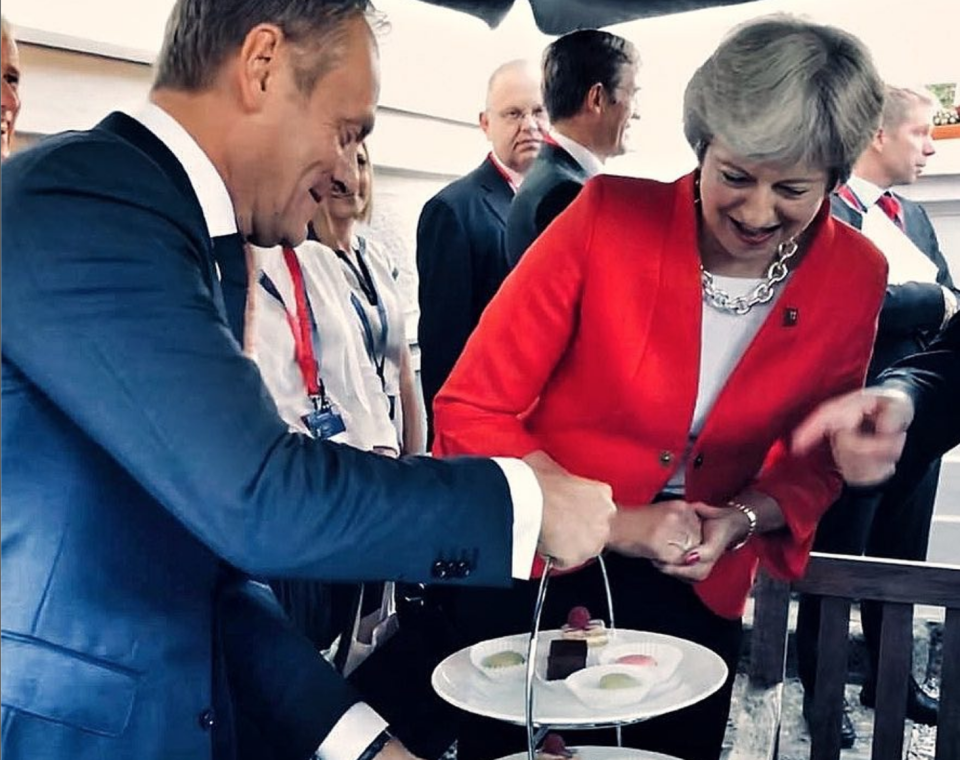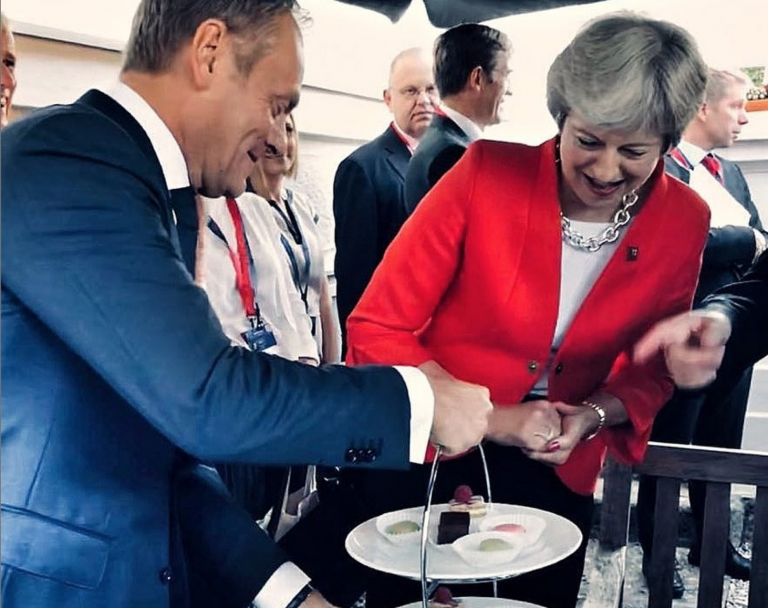After Salzburg, Theresa May's Brexit plans are in shreds – a Norway or Canada model is a long shot, but her only option
Theresa May looked shocked but should not really have been surprised by her humiliation at the EU’s summit in Salzburg. She was expecting warm words about her Chequers blueprint on future UK-EU relations, to give her political cover at home. British officials had naively talked up the prospects of going over the head of Michel Barnier, the European Commission’s chief negotiator, by appealing to the 27 EU nations’ leaders, and exploiting divisions among them.
Those officials should have known EU leaders would “chuck Chequers” at some point, probably its summit on 18-19 October. They decided not to give May the concession of waiting until after the Conservative Party conference when she overplayed her hand in Salzburg. She dismissed Barnier’s promised new offer on the Irish border (before he even tabled it) and even hinted her new proposal on the issue might not be ready by the October summit. It looked as if May was hoping to bounce the EU and her own party into accepting her package at a special summit in November the UK has long sought. Now the EU will not even hold one unless there is enough progress next month, so May’s plans are in shreds.
She could have lived with the EU’s original language on Wednesday night, that the Chequers plan would have to be “reworked”. But after she addressed her counterparts, they hardened it to a declaration that Chequers “will not work”. Britain’s hope that Germany’s Angela Merkel, worried about a no-deal exit, would inject more flexibility, proved another false dawn. Emmanuel Macron’s tough approach prevailed. “France won,” said one Brussels insider.
Where does the prime minister go from here? Today’s holding operation by loyalist ministers – dismissing the EU’s stance as mere “negotiating tactics” – won’t wash and won’t last. May needs to come up with a new plan before it really is too late. The game is not over, even if Chequers is. The one crumb of comfort for May is that EU leaders do want a deal; if she produced something they could engage with, then it would be done.
Her problem is that she has so little room for manoeuvre. Her aides have reassured cabinet ministers with doubts about Chequers that there will be no further major concessions. The cabinet is due to meet on Monday, when the doubters – including Sajid Javid, Penny Mordaunt, Esther McVey and Andrea Leadsom – are bound to seek a plan B.
The cabinet, and the noisy Eurosceptics on the backbenchers who are delighted EU leaders have answered their prayers, may well push May down the route of a limited EU-Canada style free trade agreement. That would offer UK companies less protection than Chequers and, although the EU would not object in principle, May would first have to reach agreement on the Irish border. Moving towards the EU’s position on that could easily alienate the Democratic Unionist Party MPs on whom her Commons majority depends, and many Tories.
What May should do is not head for Canada, but Norway. Leaving the EU, but remaining in the European Economic Area (EEA) along with Norway, Iceland and Liechtenstein, would cushion the impact of Brexit by keeping the EU in the single market. The UK’s economic power might allow it to win a concession on free movement. Alternatively, it could use provisions to curb migration that already exist.
Some pro-EU Tory MPs already back EEA membership. A wider group would do so if May said it was a temporary resting place, an approach already favoured by backbench allies of Michael Gove. With Chequers dead, it is more viable.
May’s problem is that both the Canada and Norway options are unlikely to win Commons approval. Labour’s approach is not far from the EEA; in theory, it could be won round with curbs on free movement. But would Jeremy Corbyn throw May a lifeline, or would he try to force a general election? I think we know the answer. In any case, May trying to rely on Labour votes – even those of Corbyn’s backbench critics – could provoke a putsch by Tory hardliners.
Without Canada or Norway, we are left with a no-deal exit. The Europhobes would welcome it. But I’m sure MPs, mainstream Tories included, would find a way to block it; they know the damage it would cause.
What then? Corbyn, of course, would want his election. He would have every right to it. But he won’t get it. Tory and DUP MPs would deny him the Commons majority he would need to secure it.
The remaining option? A growing number of MPs in all parties, and even some May allies, are slowly but surely coming to realise if parliament is deadlocked and the Tories want to avoid an election, the Brexit ball will have to be passed back to the voters.
A Final Say referendum is no longer a remote prospect. Salzburg has made it more likely. That is something Corbyn should bear in mind as Labour gathers in Liverpool this weekend for its annual conference. Understandably, he wants to respect the 2016 referendum. But, with the negotiations proving so difficult and now we know the real implications of Brexit, giving the public another say is not about overturning that vote. It is becoming the best way out of this mess.


